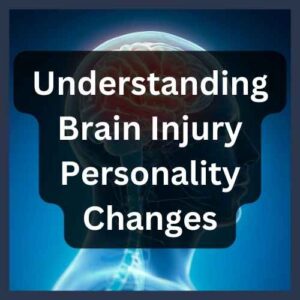
Every year, countless individuals find their lives forever changed by brain injuries sustained in car accidents. These injuries can range from seemingly minor concussions to catastrophic traumatic brain injuries (TBI) that result in lasting disabilities—or, tragically, even death. At R Martin Law Group, under the esteemed guidance of Attorney Rich Martin, we leverage our expertise and compassion to help brain injury victims in Bellevue and beyond recover, rebuild, and reclaim their future.
In this comprehensive guide, we’ll dig deep into brain injuries caused by auto accidents, break down the medical and legal landscape, and empower you with the knowledge and confidence needed to protect yourself and your loved ones. You’ll discover crucial information about how long brain injury symptoms last after a car accident, the most serious brain injuries from car accidents, why high-speed crashes cause diffuse axonal injuries in the brain, what to do if you suspect brain injury after a car accident, and the types of brain injuries you can get from a car crash. Let’s roll up our sleeves and unravel this critical topic!
What Are Brain Injuries and Why Are They So Devastating?
Brain injuries are physical injuries to the brain caused by an external force—like those unleashed in a car accident. Think of your brain as the master control center of your body. When it gets jostled, bruised, or cut, the ripple effect can be enormous: memory loss, speech difficulties, personality changes, paralysis, and much more. Even “mild” injuries can sometimes have lasting, life-altering effects. That’s why “minor” isn’t a word we take lightly in our practice!
Types of Brain Injuries You Can Get from a Car Crash
Car accidents can cause a dizzying variety of brain injuries. Here are the most common types our Bellevue personal injury law firm sees:
1. Concussion
A concussion is a mild form of traumatic brain injury (TBI). Picture your brain as Jell-O inside a jar—if you suddenly shake that jar, the Jell-O hits the side. In a crash, your brain slams against your skull. Symptoms may include headaches, confusion, memory trouble, dizziness, and even changes in mood. Some people never lose consciousness, but still experience long-term problems.
2. Contusion
A contusion is a bruise on the brain itself—often resulting from direct impact. Depending on where the bruise is, victims might have trouble with speech, coordination, or memory.
3. Diffuse Axonal Injury (DAI)
This injury is commonly seen with high-speed or high-impact crashes (such as those involving rollovers or highway collisions). The brain twists and moves violently, stretching, and sometimes tearing nerve fibers throughout. DAI is infamous for causing coma or severe, ongoing cognitive disabilities.
Curious why high-speed crashes cause diffuse axonal injuries in the brain? It’s because greater speed equals larger forces—when you stop suddenly, your brain keeps moving, putting enormous strain on microscopic nerve fibers. That internal tug-of-war can shred vital connections.
4. Coup-Contrecoup Injury
This mouthful describes an injury at both the point of impact and the exact opposite side of the brain. Imagine a ball bouncing inside a box—hit one side, and it rebounds off the other. Victims often suffer double damage.
5. Hemorrhage and Hematoma
These terms refer to bleeding in or around the brain. A hematoma is a collection of blood (think big internal bruise); a hemorrhage is active bleeding. Both can increase pressure inside the skull, risking further injury or death if not treated urgently.
6. Skull Fractures and Penetrating Injuries
Not every injury is hidden beneath the surface. Some crashes cause skull fractures, sending bone fragments or debris (glass, metal, etc.) into brain tissue. This raises risks of bleeding, infection, and irreversible damage.
7. Edema
Following trauma, the brain may swell. Picture a sponge absorbing water—inside rigid skull walls, that swelling raises internal pressure, which can choke off critical blood flow.
What Are the Most Serious Brain Injuries from Car Accidents?
Not all brain injuries are created equal. Some are more sinister, leading to higher risks of disability, persistent vegetative states, or even death. Let’s spotlight the heaviest hitters:
- Severe TBI (involving massive contusions, deep hemorrhages, or extensive swelling)
- Diffuse Axonal Injury (DAI)
- Coup-Contrecoup Injury
- Massive cerebral edema (brain swelling)
- Open or penetrating brain injuries caused by skull fractures, bullets, or sharp debris
Victims of these severe injuries require rapid emergency care, prolonged hospitalization, and extensive rehabilitation. Some may never recover fully, and many require lifelong support—including home modifications, vocational retraining, or nursing care.
Why Do High-Speed Crashes Cause Diffuse Axonal Injuries in the Brain?
This is a critical question our clients often ask. Picture a sudden stop on the freeway—the car halts, but your brain, floating in cerebrospinal fluid, keeps going. The sudden deceleration twists and stretches delicate nerve fibers, leading to tears across neural pathways. The faster and more violent the crash, the greater the risk of DAI, unconsciousness, coma, and devastating long-term effects.
In Bellevue, as urban speeds climb or distracted driving increases, this risk is ever-present—making vigilance behind the wheel and seatbelt use more vital than ever.
Spotting Brain Injury Symptoms After a Car Accident
You’ve had a crash. Maybe you walked away—or maybe the paramedics treated you at the scene. Either way, brain injury symptoms don’t always show up right away. Here are warning signs to watch for—sometimes symptoms sneak up hours, days, even weeks later:
- Persistent or worsening headache
- Dizziness or loss of balance
- Nausea or vomiting
- Confusion or trouble remembering new information
- Slurred speech or strange word choices
- Lethargy, excessive drowsiness, or difficulty awakening
- Mood swings, depression, or anxiety
- Sensitivity to light or sound
- Seizures
- Unexplained behavior changes
Pro tip: If you or a loved one begin experiencing these symptoms, don’t “wait and see.” Brain injuries can deteriorate quickly!
How Long Do Brain Injury Symptoms Last After a Car Accident?
This is a million-dollar question. There’s no simple answer, because every brain and every injury is different.
- Mild TBIs or concussions: Most symptoms fade within a few weeks, but for some (think: post-concussive syndrome) symptoms may linger for months or rarely, even longer.
- Moderate to severe TBIs: Recovery can take months, years, or in some cases, symptoms may never fully resolve. Rehab, therapy, and ongoing medical support are often required.
- DAI & Severe injuries: Many victims are left with permanent cognitive, behavioral, or physical deficits—even with intensive therapy.
The bottom line? Never underestimate a “mild” symptom. Always get checked out, follow your doctor’s advice, and talk to a skilled brain injury attorney if your (or a loved one’s) life is upended by a crash.
Common Brain Injuries in High-Speed Collisions
High-speed accidents crank up the risk and seriousness of brain injuries. The most frequent culprits are:
- Diffuse Axonal Injury (DAI): Due to the rapid acceleration/deceleration in high-speed crashes, these injuries are notorious for causing unconsciousness and profound neurological deficits.
- Coup-Contrecoup Injuries: The violent back-and-forth motion slams the brain against the inside of the skull, causing damage at two or more points.
- Severe TBI: High forces equal high stakes—more bleeding, bigger bruises, and the risk of fatal swelling.
- Hemorrhage/Hematoma: Uncontrolled bleeding within the skull is more likely when vehicles collide at extreme speeds.
After a high-speed collision, medical teams should be on full alert for signs of these dangerous conditions—even if you “feel fine” at first.
What to Do If You Suspect Brain Injury After a Car Accident
Let’s cut to the chase. If you or someone else may have suffered a brain injury, time is of the essence:
- Seek Emergency Medical Attention: Don’t tough it out! Call 911 or visit the nearest emergency department. Quick assessment can save lives and prevent permanent deficits.
- Document Everything: Keep track of what happened in the accident, your symptoms, doctor visits, and all expenses. Take photos. Write down how you (or your loved one) are affected, even weeks after the crash.
- Follow Professional Recommendations: Adhere to medical advice, including imaging, therapy, and rest. Skipping steps can delay or complicate your recovery.
- Contact a Trusted Personal Injury Attorney: Protect your rights immediately. Top legal representation—like that offered by R Martin Law Group—can secure vital evidence, shield you from insurance company tactics, and ensure you receive the compensation you need for ongoing care. Don’t let the stress of paperwork, calls, and legal jargon add to your trauma.
Life After a Brain Injury: Recovery, Rehabilitation, and Legal Support
Recovery from a brain injury is often a marathon, not a sprint. Acute medical care may be just the beginning: many survivors enter lengthy rehabilitation for physical, cognitive, and emotional challenges. As one door closes, another may open—though the journey isn’t always smooth.
Survivors and their families often grapple with:
- Lost income or reduced earning potential
- Mounting medical bills
- Emotional strain and caregiver burnout
- The heartbreak of “invisible” or misunderstood disabilities
That’s where legal advocacy steps into the spotlight. A knowledgeable injury attorney can illuminate the path forward—fighting for fair compensation, connecting you with support services, and restoring hope when the future seems uncertain.
How R Martin Law Group Protects Bellevue Brain Injury Victims
At R Martin Law Group, we bring years of experience, a tireless work ethic, and a personal touch to every case. Rich Martin, honored among the National Top One Percent for personal injury attorneys, leads our team with resolve, empathy, and savvy.
Here’s how we help:
- Prompt Investigation: We work swiftly to collect evidence, witness statements, accident reports, and medical documentation. Time is critical!
- Medical Resources: Our network connects clients with top neurologists, therapists, and specialists—ensuring optimal recovery potential.
- Negotiation Power: We know the insurance playbook—and we don’t let adjusters nickel-and-dime our clients. If we need to go to court for you, we’re ready.
- Compassionate Guidance: Each client receives honest feedback, clear communication, and support at every step. You’re never alone on this journey.
Frequently Asked Questions (FAQs) on Brain Injuries After Car Accidents
1. How long do brain injury symptoms last after a car accident?
It varies. Mild injuries may resolve in weeks, but moderate or severe TBIs can have lifelong symptoms. Always follow up with your doctor, track your condition closely, and don’t ignore lingering changes in memory, mood, or function.
2. What are the most serious brain injuries from car accidents?
DAI, severe TBI, open/penetrating injuries, and massive edema or hemorrhage are the most dangerous—each carries a high risk of death or permanent disability.
3. Why do high-speed crashes cause diffuse axonal injuries in the brain?
Because higher speeds create more violent forces, rapidly accelerating and decelerating the brain inside the skull, tearing delicate neural fibers.
4. What are the types of brain injuries you can get from a car crash?
Concussion, contusion, DAI, coup-contrecoup, hemorrhage, hematoma, skull fracture, and edema are all possible post-accident.
5. What to do if you suspect brain injury after a car accident?
Act fast: Seek emergency care, document everything, follow professional recommendations, and contact a trusted personal injury attorney.
Conclusion: Protect Your Brain, Protect Your Future
Brain injuries aren’t always visible, but their effects can reach every corner of your life. Whether you’re facing a concussion or the catastrophic fallout of a high-speed collision, knowledge is your first line of defense—and assertive legal counsel is your best ally.
Key Takeaways:
- Car accidents are a leading cause of all kinds of brain injuries—including some of the most devastating.
- Symptoms can appear immediately or be delayed, so never ignore warning signs after a crash.
- High-speed crashes are especially likely to cause severe injuries like DAI, coup-contrecoup, and big bleeds.
- If brain injury is suspected, act quickly: seek care, document, follow up, and reach out to a seasoned attorney.
If you or someone you love has suffered a brain injury in a car accident, don’t fight this battle alone. Contact R Martin Law Group today, serving Bellevue, Washington, with extraordinary skill, compassion, and success. Protect your rights, secure your future—let Attorney Rich Martin and his team carry your burden, so you can focus on what matters most: healing and hope.
Ready to talk? Call or message R Martin Law Group now for a confidential, no-cost consultation. Your path to justice starts here.
Contact us today for a no-obligation consultation and take the first step towards finding peace of mind.
Call (425) 635-2000 to Discuss Your Case Details. 100% No Win No Fee Guarantee.








